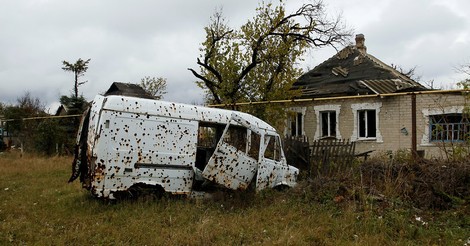Your podcast discovery platform
Curious minds select the most fascinating podcasts from around the world. Discover hand-piqd audio recommendations on your favorite topics.

piqer for: Globalization and politics Global finds
I am an Australian freelance journalist focussing on conflicts, politics, and warzones around the world. I have been working as a journalist for over 5 years, having reported from Australia, Germany, China, Egypt, Palestine, and Ukraine. I am especially interested in the way that new technologies are being used in conflict zones in unexpected and often disturbing ways. During my time working as a journalist, I also co-founded open-source war reporting site Conflict News.
How's Life In The War Zone? Not Great
It is often said that “war is 99% boredom and 1% sheer terror”. While the implications of this are obvious for soldiers who spend most of their tours killing time, before periodically killing or being killed, the way it plays out for civilians is often rather different.
Life in war zones must go on. There are bills to pay and mouths to feed, and you simply can't afford to wait for the next attack. This is especially true in the so-called 'low-intensity conflicts' which are growing in prevalence around the world. One or two people a day might be killed on the front line, but just a kilometer away, business as usual continues – punctuated by the occasional boom of an artillery piece.
Writing for the New York Times, Alisa Sopova chronicles life in one such twilight zone: Donetsk, Ukraine. Held by pro-Russian separatists, the residents of the city are effectively being held as human shields by the authoritarian government of the Donetsk People's Republic, while at the same time distrusted by the authorities in the remainder of Ukraine. Life is hard, but nonetheless, it continues apace.
I’ve seen a school that operates 500 feet from the front. Children are bused there along a narrow road through minefields. I’ve heard that another school was shelled earlier this month. The windows were blown out while 370 children were inside. Four days later, the glass was fixed and the classes resumed. War is war, but you’ve got to go to school.
The war is largely forgotten, and so too are the voices of those trapped by it. For this reason, Alisa's account is notable if only for its uniqueness in this era of 'fire and fury'.
